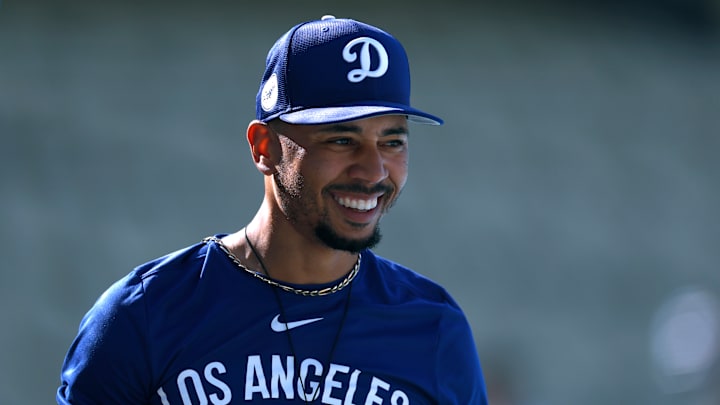If there was any doubt that the Los Angeles Dodgers are the model for what a well-run baseball organization looks like, all you have to do is listen to what front offices from teams like Boston Red Sox say.
The Red Sox have cited the Dodgers as being a role model for how they conduct business. The Dodgers have not only built a winning team; they have established a winning culture and developed depth throughout the organization to repeat their success.
The Dodgers have made the playoffs in 12 consecutive seasons. They have made the NLCS seven times in the last 12 years, won the pennant four times, and won two World Series championships.
Sustainability like that is hard to achieve, which is exactly why a team like the Red Sox — with money to spend in a market that demands excellence — are trying to emulate what the Dodgers do.
Just like the Dodgers, the Red Sox are trying to lean into numbers and analytics. They are patient and prioritize data over emotion. Dodgers executive Andrew Friedman is spectacular at that, but Friedman has something the Red Sox lack.
Over the last few years, the Red Sox have missed a really important lesson from the Dodgers: managing people can be just as important as managing the data.
LA Dodgers' model of sustainability has Red Sox missing one key approach
With the Red Sox fielding questions this week about trading Rafael Devers to the San Francisco Giants, they have pointed to their recent success as an organization as justification.
"I'll put our record up against anyone else's over the last 24 years. We've got more trophies and banners to show for it than other organization in baseball," said Red Sox president and CEO Sam Kennedy last week.
While I'm in the minority that actually believe the Devers trade will work out well for Boston, pointing to previous Red Sox teams as a justification for the trade is illogical. Former ESPN analyst and sports journalist Joon Lee perfectly laid out why on social media this week.
"The Red Sox won championships with a collaborative front office culture. They've cited the Dodgers as a role model for 'sustainability' but have leaned all the way into the numbers and have forgotten people skills," Lee wrote. "When I've heard from people around baseball who work with the Dodgers and the Red Sox, they say the two cultures couldn't be more different. Andrew Friedman is a numbers guy, but also makes people feel heard. He's able to find the balance between the analytics."
Thought this was an interesting comment from Sam last night.
— Joon Lee (@joonlee) June 17, 2025
The Red Sox won championships with a collaborative front office culture. They've cited the Dodgers as a role model for "sustainability" but have leaned all the way into the numbers and have forgotten people skills. https://t.co/7Ja4g0B1H8
Craig Breslow (the Red Sox Chief Baseball Officer) is a smart guy. He knows baseball and, as Freeman said in his media availability, he's a World Series champion that knows what it takes to win in Boston. But every former player should also know that baseball has a human element to it that cannot be quantified by computers or data.
The Red Sox mismanaged their relationship with Rafael Devers. They botched contract negotations with Mookie Betts before trading away the future Hall of Famer to the Dodgers. In the wake of that deal, Boston also botched the messaging to their fanbase.
Breslow and Kennedy were booed at a Red Sox fan convention during the offseason. That kind of thing isn't happening to Andrew Friedman. It wasn't happening to Farhan Zaidi either when he was in control of the Dodgers, and Zaidi never delivered a championship.
Sam Kennedy and Craig Breslow getting booed as they walked out.
— Tyler Milliken (@tylermilliken_) January 20, 2024
🎥: @HebHammer94
pic.twitter.com/mSdl9b65l4
In fact, after spending years with the rival Giants as the President of Baseball Operations, Zaidi returned to work for the Dodgers in 2025.
That's because the Dodgers collaborative front office culture that makes it such a fun place to succeed. It's why executives want to be in LA, coaches want to to coach in LA, and the Dodgers are at the top of almost every free agent's wish list.
Boston, on the other hand, has developed a reputation around the league for having "an impersonal work culture," according to Joon Lee.
They have also developed a reputation for trading away their star players, leading to questions about ownership's desire to win.
The Red Sox want to be the Dodgers, but they don't have the same understanding of people that it takes to build a sustained championship contender. Maybe if they did, Rafael Devers would have been a more flexible teammate and he'd still be playing his home games at Fenway Park.
